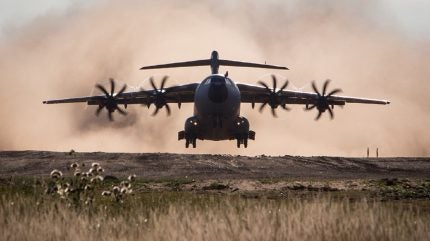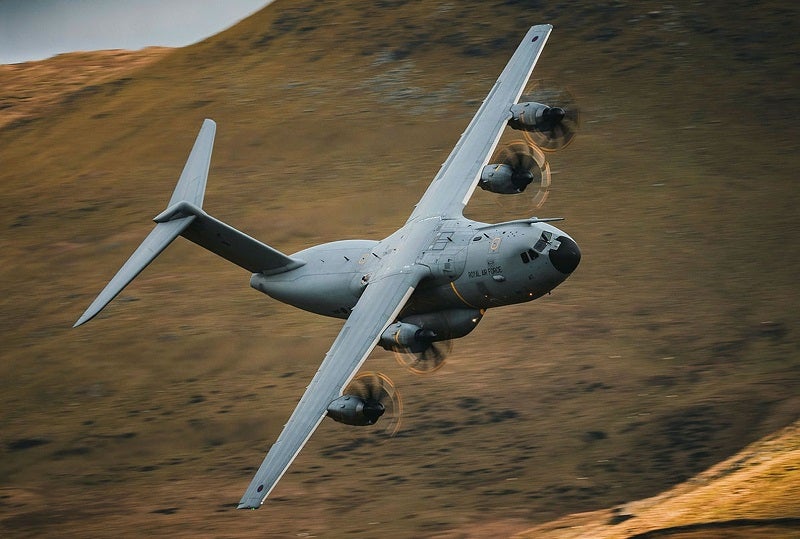
In an exclusive media briefing, Airbus revealed its intention to deliver the A400M military airlift aircraft to the United Arab Emirates (UAE) when the time comes.
On the margins of the International Defence Exhibition and Conference (IDEX 2025) in Abu Dhabi on 18 February, the company’s newly appointed president for Africa and the Middle East, Gabriel Semelas, was joined by the head of the programme, Gerd Weber, to offer details behind their preparations for the future bid.
The A400M, known as the Atlas in UK service, can carry payload up to 37 tonnes, fly a maximum range of 4,800 nautical miles, and perform air drop tasks, among other roles.
Currently, the UAE Air Force operate six C-130H transport aircraft provided by the American defence prime Lockheed Martin; the oldest of them entered service in 1981 according to intelligence from GlobalData’s ‘UAE Defense Market 2024-2029’ report.
“The A400 is a natural successor to C-130,” the duo asserted. Out of ten A400M users, only three – Kazakhstan, Luxembourg, and Spain – have not operated the alternative legacy aircraft before.
In the UK, the previous House of Commons’ Defence Committee had criticised the early retirement of C-130J seven years before its planned out-of-service date, leading members to “closely scrutinise the performance of the A400M.”
Soon, the UAE will need to replace the C-130 beginning in 2028. Airbus’ conversations with the Gulf nation left the European prime with an understanding that a decision on the selected platform may be made, Weber stated, “in the course of this year”.
In addition, he pointed to another fact that would attract the UAE Air Force to Atlas: “the cockpit is very familiar to the UAE, because it is basically [that of] an A330,” another Airbus tanker, three of which the UAE acquired in 2013 according to GlobalData.

Primary production system
Weber intimated that as many as 30-40 A400M aircraft would be built in the Middle East, while the UAE alone is expected to procure eight to ten of these units – should the Gulf nation accept Airbus’ future tender.
The two company officials noted that the prospective deal would stimulate local industry:
“We are in intensive talks with our partners here in the UAE when it comes to localising part of the production. We even intend to have parts of primary production system probably being done in the UAE. It’s going to bring a lot of complex careful manufacturing to the country.”
The primary production system would comprise the large sections including the fuselage.
“We want to become a partner, not just sending aircraft,” Semelas emphasised. Airbus has already spent the last 15 years cultivating these partnerships with local companies: including Strata, AMMROC, and EPI.
“We forge strategic relationships with them and help them develop the know-how in certain aspects,” Semelas declared, “but also supporting them in gathering some of these capabilities that they need.”
Airforce Technology contacted the UAE Ministry of Defence regarding the prospective deal but they did not respond for comment.



